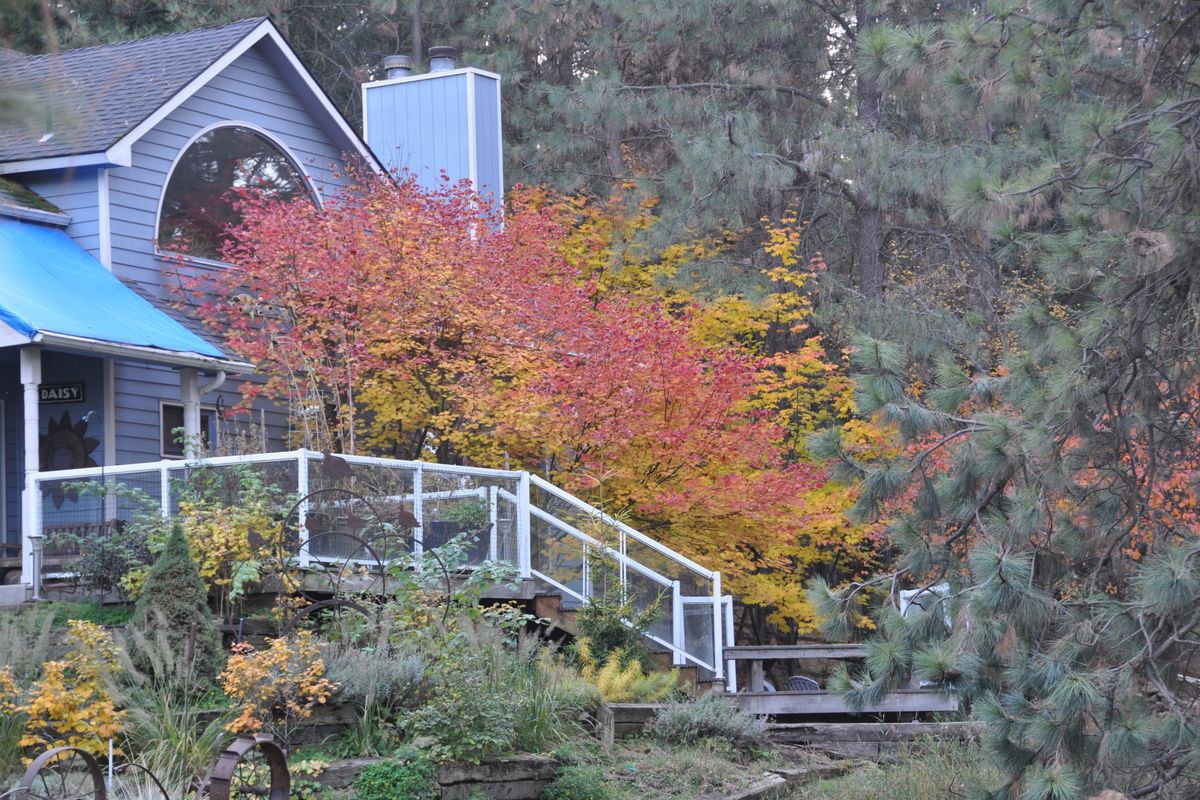Gardening: Continued warm weather likely means muted fall colors

The long, slow slide into fall has had its benefits this year. First, late blooming plants like asters, goldenrod and sedum are blooming to perfection allowing us to enjoy them but also giving the honeybees a late feat of pollen and nectar. The sunflowers are heavy with seed after blooming late because of the heat and the birds will shortly pick them clean. The next windstorm will start bringing down the pine needles.
And the annual Fall Leaf Festival is BACK. Held at the James A. Finch Arboretum in west Spokane the festival is returning after a pandemic hiatus, This year’s event will be 11 a.m.-2 p.m. Oct. 22, rain or shine. Put on by the Spokane’s Parks and Recreation and Urban Forestry departments, this is a family event that gives everyone a chance to play in the leaves, celebrate trees, sip hot cider and take a tour of the arboretum. The Spokane Master Composters and Recyclers will demonstrate how to make black gold out of leaves, kitchen and garden waste. Community groups and local businesses will have hands-on projects for everyone to try, as well as a scavenger hunt, opportunities to learn how to make birds welcome in your yard and identify the different trees found in the arboretum. To add to the fun, there will be live music with the Angela Marie Project and a variety of food trucks if you are hungry. The event is free.
Just how much fall color we will have by the end of October is still up in the air. Most trees and shrubs are starting to turn color but without a good frost, the colors will be muted. Frosty temperatures tell the plants to stop producing the green pigment chlorophyl. With the chlorophyl gone, the underlying orange, yellow and red pigments come forward. The frost also signals the leaves to harden off where they attach to the tree allowing them to break off in the wind.
Then it will be time to harvest all that organic matter and mulch garden beds for the winter. Garden maintenance philosophies are shifting. Gone are the ideas that garden beds should be swept clear of fall debris. Instead, experts now say that returning or leaving the debris to beds is more ecologically sound as it returns nutrients to the soil, provides mulch to keep next year’s weeds down and reduces water loss from the soil. This is what happens in nature and many of the new gardening techniques are saying we need to get back to that philosophy. After all, it has worked for nature for millennia.
Rake the dense piles of leaves and needles off plants onto the lawn and run over it with the lawn mower. Then return the finely chopped material to the beds tucking it under the standing leaves and on bare spots. This includes pine needles as they are an excellent mulch that contrary to local myth do not acidify the soil. They are also a good replacement for bark mulch.